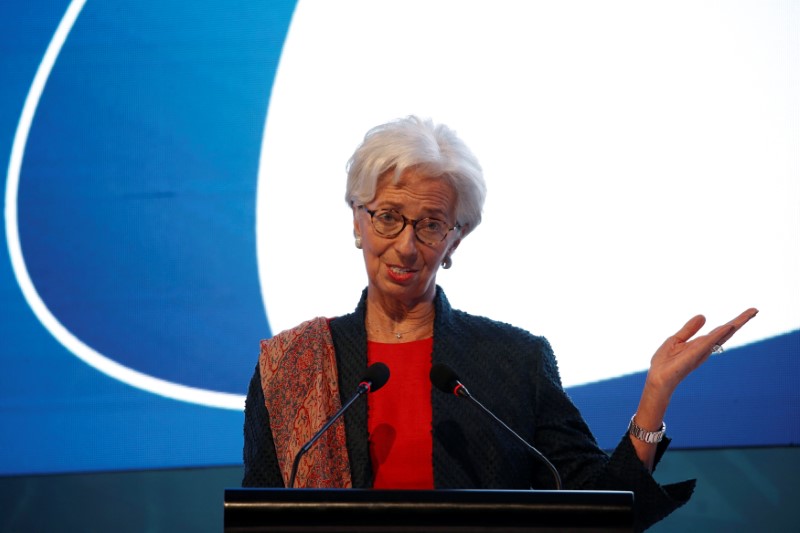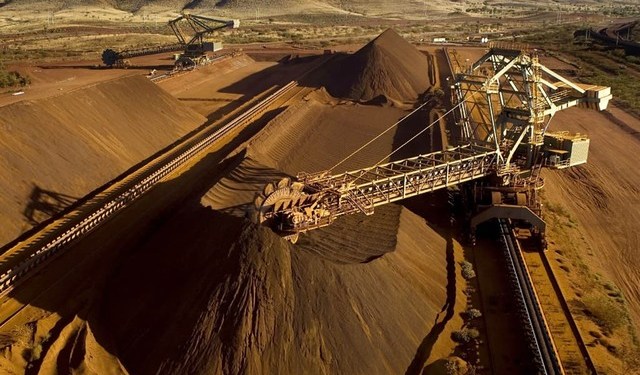 © Reuters. FILE PHOTO: International Monetary Fund Managing Director Christine Lagarde gesture as she delivers a speech during an IMF conference in Jakarta
© Reuters. FILE PHOTO: International Monetary Fund Managing Director Christine Lagarde gesture as she delivers a speech during an IMF conference in JakartaBy David Lawder
YOGYAKARTA, Indonesia (Reuters) – International Monetary Fund Managing Director Christine Lagarde said on Thursday that China should reduce excess capacity in its steel and coal industries faster and more efficiently, heeding advice from the IMF as the United States prepares new tariffs.
Lagarde made the comments in an interview with Reuters hours before U.S. President Donald Trump said that he would impose tariffs of 25 percent on imported steel and 10 percent on aluminum next week. [nL2N1QJ1LB]
The tariffs, to be imposed under a Cold War-era national security trade law, are aimed partly at curbing excess capacity in China, which produces more than half the world’s steel and is widely blamed for flooding world markets with cheap exports.
Although little Chinese steel directly reaches U.S. ports because of previous anti-dumping duties, U.S. steel industry executives say Chinese steel is still widely shipped to the United States through third countries.
Lagarde, who opposes unilateral tariff actions and has called for international trade rules to be respected, said the IMF has urged China in annual reviews of its economy for years to reduce excess steel capacity, “in the energy sector as well – the coal business.”
In its last review in August, the IMF said industrial excess capacity in steel and other sectors was not only causing tension with trading partners but was damaging to China’s medium-term growth prospects, its environment and its financial stability. The Fund said China’s capacity reduction targets appeared to include closure of already-idled steel plants.
“They have begun implementing some of that restructuring that is needed, but more needs to be done,” said Lagarde, who is on a week-long trip to Indonesia. “So I think looking at this issue of overcapacity in a much more, shall I say, efficient and expedited way would certainly be a good step.”
Lagarde did not offer specific prescriptions for how that should be accomplished.
The Group of 20 major economies has created a steel forum to try to solve the excess capacity problem, but the group has yet to make substantial progress. The United States and China were at odds at a group meeting last November, with Washington insisting on subsidy cuts and Beijing insisting that it has done its part to close plants. [nL8N1O05OC]
Fusion Media or anyone involved with Fusion Media will not accept any liability for loss or damage as a result of reliance on the information including data, quotes, charts and buy/sell signals contained within this website. Please be fully informed regarding the risks and costs associated with trading the financial markets, it is one of the riskiest investment forms possible.
Source: Investing.com



























